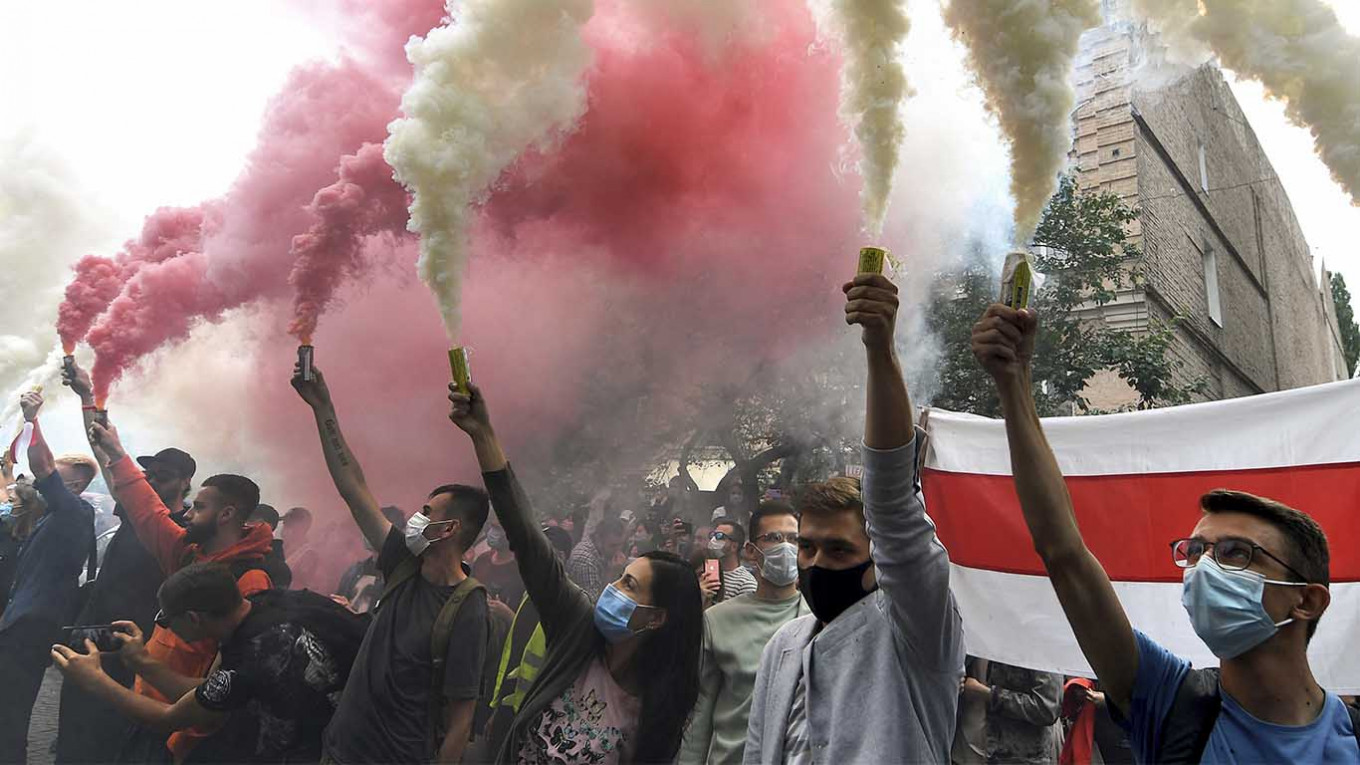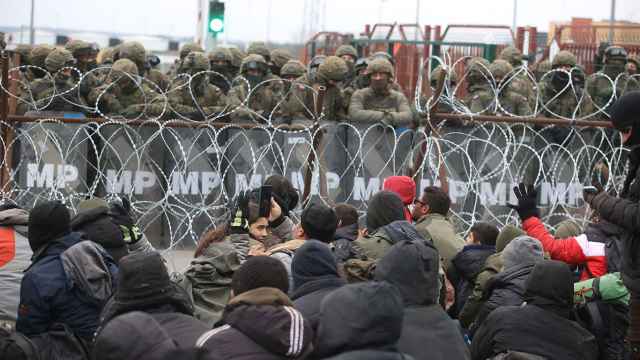White bracelets, flowers, a punched fist and a Soviet-era song: all have become symbols of opposition to the re-election of Belarus President Alexander Lukashenko to serve a sixth term.
White
The color white has become central in the protests sparked by Sunday's vote, which have massed behind Lukashenko's presidential challenger Svetlana Tikhanovskaya, a 37-year-old English teacher by training who until recently was a stay-at-home mother.
Often dressed in white, she has called on supporters to wear white bracelets, which have become one of the key symbols of the anti-government demonstrations.
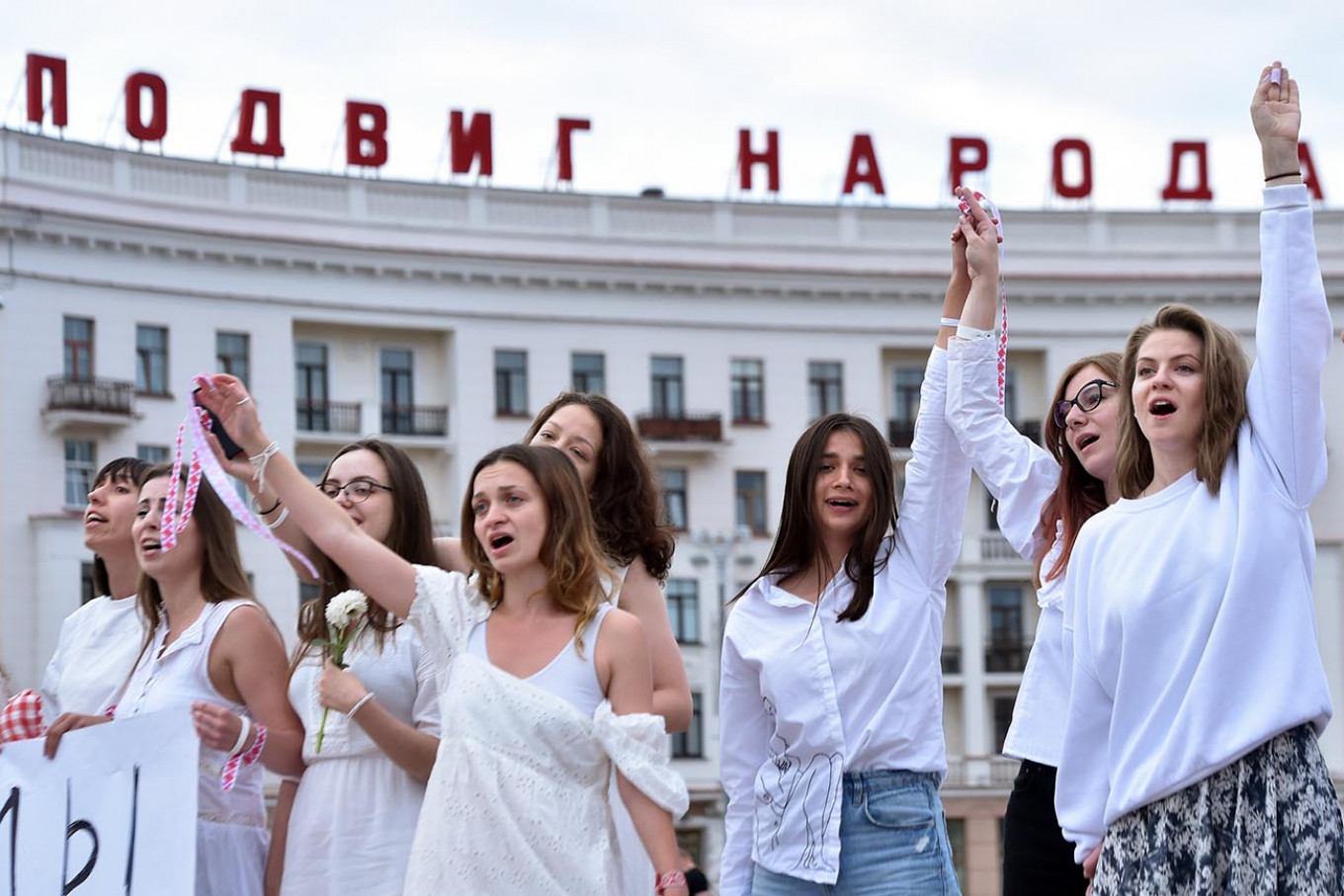
In the last two days, thousands of women clad in white dresses or shirts have formed human chains in the capital Minsk and other cities to denounce the violent police crackdown on the protests against Lukashenko, who has been ruled Belarus with an iron fist for 26 years.
Protesters say white symbolizes peace. Along with red it is also the color of the Belarusian flag in the period before the Soviet Union and in the years between the bloc's collapse and Lukashenko taking power in 1995.
Flowers
Women taking part in the protests often carry a white or red flower.
Some have offered their flowers to the riot police, who have clashed violently with protesters, kicking them and beating them with batons.
Since Sunday evening some 6,700 demonstrators have been arrested and Belarus has confirmed the deaths of two protesters.
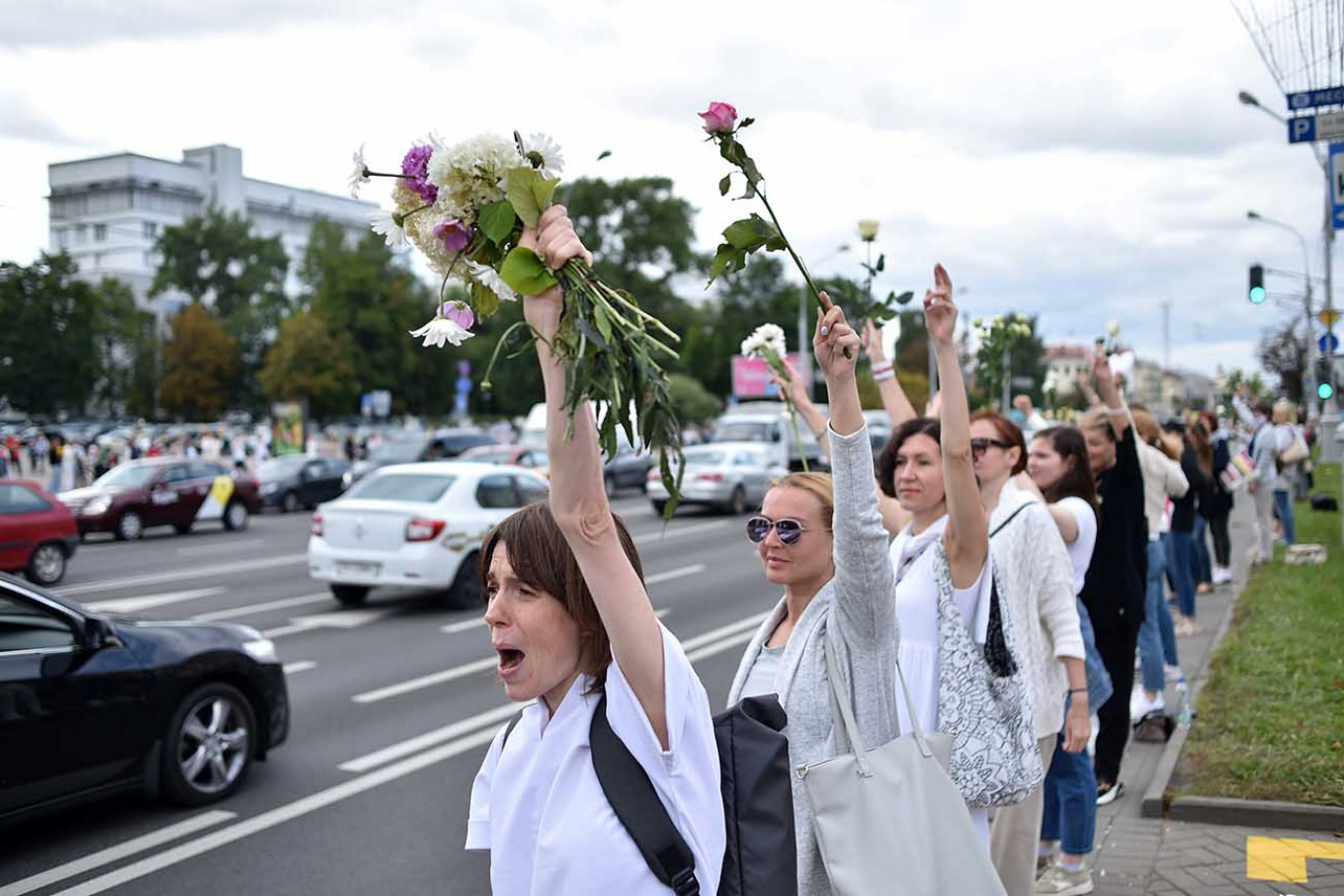
Signature gestures
Tikhanovskaya heads a trio of women that has rallied protesters to defy the 65-year-old moustachioed president with a macho image.
In posters and at rallies, each woman has adopted a signature gesture.
Tikhanovskaya, who decided to run for president after her blogger husband Sergei Tikhanovsky was jailed and barred from contesting, has become known for her punched fist.
Maria Kolesnikova, the campaign chief of ex-banker Viktor Babaryko who was dropped from the polls and is in jail, curls her fingers in a heart shape.
Veronika Tsepkalo, whose ex-diplomat husband Valery Tsepkalo was also barred from standing, shows a victory sign.
These gestures have been adopted by demonstrators on the streets of Minsk and elsewhere.
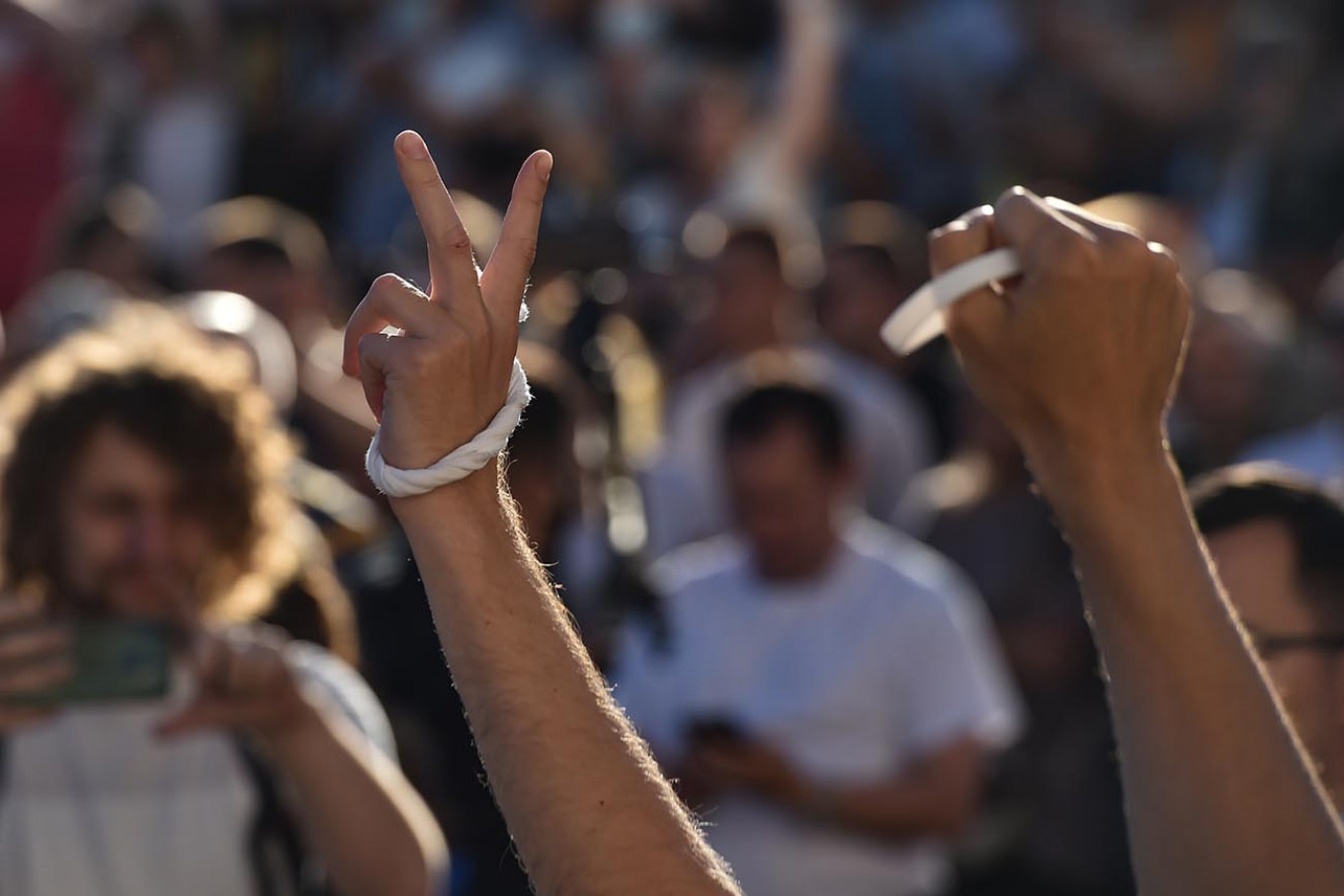
Soviet-era song
The famous Soviet perestroika-era song "Peremen!" (Changes) blasts out everywhere during demonstrations — from smartphones in the crowds, or even performed by a violinist in front of the Belarusian consulate in Moscow.
Opponents to Lukashenko's regime have, like previous protest movements, adopted as an anthem and rallying cry this song, performed by Russian 1980s rock star Viktor Tsoi and his band Kino shortly before the fall of the Soviet Union.
The song was even in evidence on the run-up to Sunday's election: on Aug. 6, two DJs who support the opposition sneaked the song, considered subversive by the authorities, onto the playlist of a pro-government concert in Minsk, drawing applause from part of the crowd.
The DJs were arrested and sentenced to 10 days in prison.
A Message from The Moscow Times:
Dear readers,
We are facing unprecedented challenges. Russia's Prosecutor General's Office has designated The Moscow Times as an "undesirable" organization, criminalizing our work and putting our staff at risk of prosecution. This follows our earlier unjust labeling as a "foreign agent."
These actions are direct attempts to silence independent journalism in Russia. The authorities claim our work "discredits the decisions of the Russian leadership." We see things differently: we strive to provide accurate, unbiased reporting on Russia.
We, the journalists of The Moscow Times, refuse to be silenced. But to continue our work, we need your help.
Your support, no matter how small, makes a world of difference. If you can, please support us monthly starting from just $2. It's quick to set up, and every contribution makes a significant impact.
By supporting The Moscow Times, you're defending open, independent journalism in the face of repression. Thank you for standing with us.
Remind me later.


